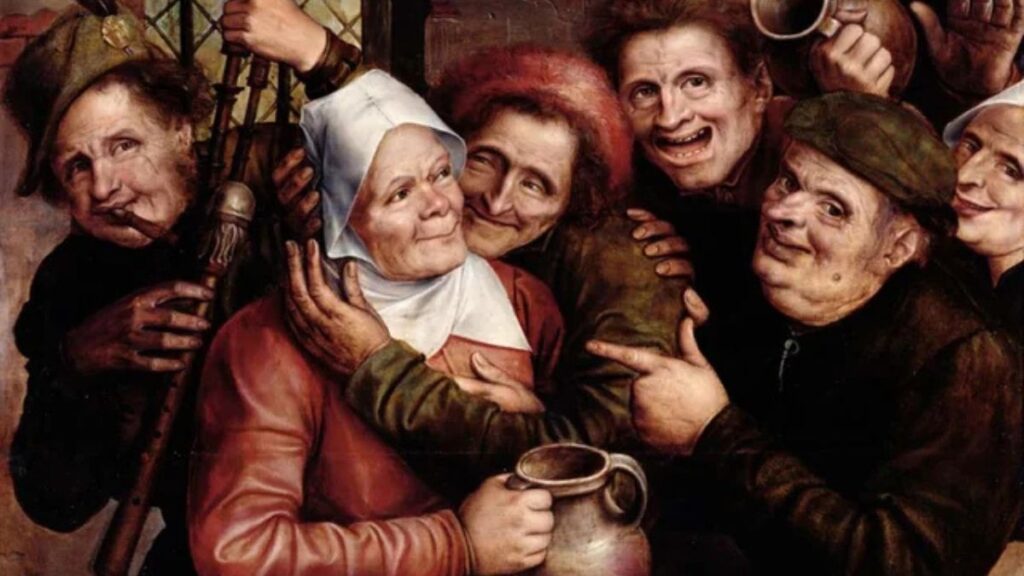Introduction to the concept of ugly people
In a world obsessed with appearances, the term “ugly people” often carries an unfair weight. It conjures images of judgment and exclusion—traits that don’t tell the whole story. Beneath what society deems unattractive lies a rich tapestry of character, resilience, and untapped potential.
The truth is that beauty standards are nothing more than fleeting ideals shaped by cultural norms. When we label individuals based on their looks, we miss out on recognizing their unique qualities and contributions to our lives. Let’s delve into this complex topic together and discover the hidden depths behind those who may not fit conventional standards of beauty.
The societal obsession with physical appearance
Society places immense value on physical appearance. From early childhood, we absorb messages about beauty and attractiveness. Social media amplifies these ideals, often showcasing unrealistic standards.
Everywhere we look, images of “perfection” bombard us. Advertisements promote a narrow view of what is deemed beautiful. This relentless pressure can distort self-image and foster insecurities.
We’re taught to equate worth with looks, creating a culture obsessed with aesthetics. People invest time and money into enhancing their appearances while neglecting deeper qualities.
The consequences are far-reaching. Mental health issues such as anxiety and depression often stem from this fixation on looks. The quest for beauty can overshadow individual talents and unique characteristics that truly define a person’s value.
This obsession not only affects those labeled as “ugly people,” but also impacts everyone striving for unattainable perfection in an imperfect world.
The harm caused by labeling someone as
Labeling someone as “ugly” perpetuates harmful stereotypes. It fosters a culture of exclusion and discrimination that affects not just self-esteem, but overall mental health.
When society defines worth based on appearance, individuals can feel trapped in a cycle of negativity. Those labeled as ugly often experience bullying or social isolation, leading to anxiety and depression.
This judgment doesn’t only impact the individual; it ripples through communities. Friends, family members, and colleagues may inadvertently carry these biases into their interactions.
Moreover, this narrow definition stifles genuine connections. People miss out on the rich experiences that come from knowing someone beyond their looks.
The emphasis on physical beauty overshadows talents, intelligence, and kindness—qualities far more valuable than superficial traits. By focusing solely on appearances, we undermine the unique contributions each person brings to the table.
The hidden beauty and strengths of so-called
Ugly people often possess qualities that go unnoticed at first glance. Their true beauty lies in their resilience, creativity, and authenticity.
These individuals frequently challenge societal norms. They redefine what it means to be beautiful by showcasing strength of character over superficial traits.
Many have remarkable talents—a unique perspective on life that is rooted in their experiences with judgment and bias. This depth can lead to profound artistry or innovative thinking.
Emotional intelligence is another hidden gem among those deemed unattractive. Having faced adversity, they tend to develop empathy for others, fostering deeper connections.
In a world obsessed with perfection, the so-called ugly offer a refreshing narrative—celebrating imperfections as part of the human experience enriches our understanding of beauty beyond physical appearance.
Famous examples of successful and influential
Throughout history, many individuals defied conventional standards of beauty and achieved incredible success.
Take Winston Churchill. Widely regarded as one of the greatest leaders, his portly frame and distinctive features did not hinder his ability to inspire a nation during its darkest hours.
Another example is Susan Boyle. She burst onto the scene with her stunning voice, challenging preconceived notions about talent and appearance on “Britain’s Got Talent.” Her journey resonated globally.
Then there’s Steve Jobs. His focus was never on external aesthetics but rather innovation and vision. He changed technology forever, proving that true impact often transcends physical looks.
These figures remind us that character, intellect, and determination often outweigh superficial perceptions. They challenge societal norms and highlight that greatness isn’t skin deep; it’s found within one’s spirit and drive for excellence.
Breaking free from society’s narrow definition of beauty
Society often imposes rigid standards of beauty, shaping how we perceive ourselves and others. This narrow definition can be suffocating. Many feel pressured to conform, leading to anxiety and low self-esteem.
However, breaking free from these constraints is liberating. Embracing individuality allows us to appreciate diverse appearances and talents. Personal stories reveal the strength found in authenticity.
When we value character over conventional looks, a transformation occurs. People become more than just their physical attributes; they emerge as vibrant beings with unique experiences and perspectives.
Artistic expressions thrive outside societal norms too. Musicians, writers, and creators redefine beauty through raw emotion rather than polished aesthetics. Their work inspires acceptance of all forms of existence.
Every person has an inner light waiting to shine through regardless of external perceptions. Celebrating this diversity enriches our lives and fosters genuine connections among individuals who dare to embrace themselves fully.
Conclusion: Embracing diversity and celebrating inner beauty
The journey toward embracing diversity and celebrating inner beauty is one we all need to embark on. Society often highlights physical appearance, creating a narrow definition of what it means to be attractive. This fixation can overshadow the unique qualities that make each person special.
When we label someone as an “ugly person,” we miss out on the depth of their character, talent, and spirit. True beauty lies beyond skin deep; it’s in kindness, intelligence, resilience, and creativity. Every individual has strengths worth recognizing.
Fostering an environment where diverse appearances are celebrated can lead to greater acceptance and understanding among us. Let’s shift our focus from superficial judgments to appreciating the richness of human experience. By valuing inner beauty alongside outer appearance, we pave the way for a more inclusive world.
It’s about recognizing that everyone has something valuable to contribute—regardless of how they look on the outside. Embracing this mindset opens doors not just for ourselves but also for those around us who may have been unfairly judged based on their looks alone.






